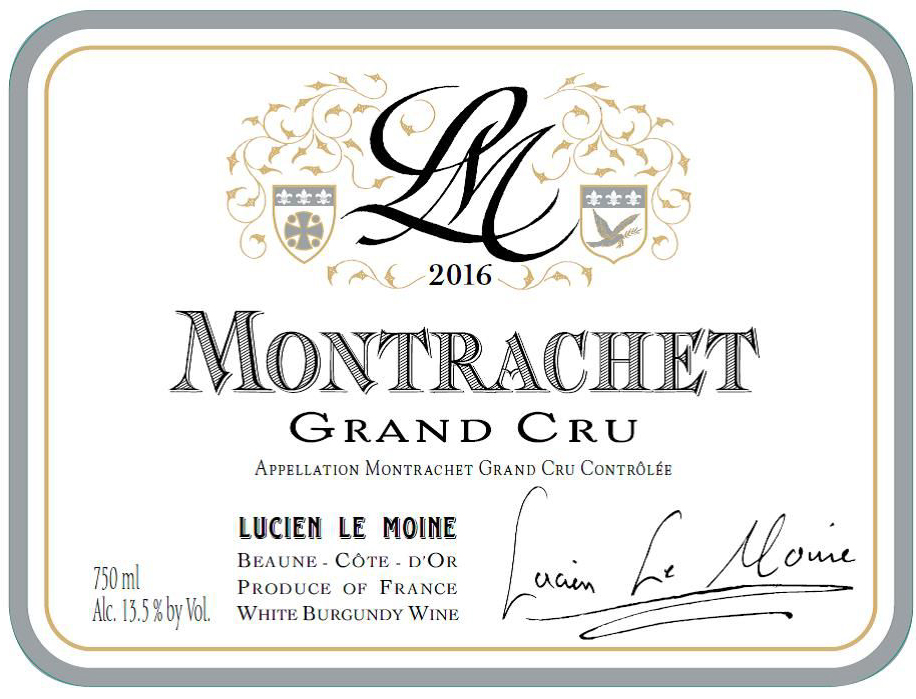
Lucien Le Moine
Montrachet Grand Cru
Montrachet Grand Cru
No superlatives need be stated here about Montrachet. Mounir has worked in several areas of Montrachet, both on the Pernand and the Chassagne side, and has even once bottled them separately. He does not produce a Montrachet every year, only when he feels it will be worthy of the vineyard’s renown, and can stand at the pinnacle of his white wines.

Domaine Chanson
Charmes-Chambertin
Charmes-Chambertin, Burgundy
This climat "Charmes" is located on a mid slope facing east in the Southern part of the village of Gevrey Chambertin. One of its nearest neighbour is the famous of "Chambertin".
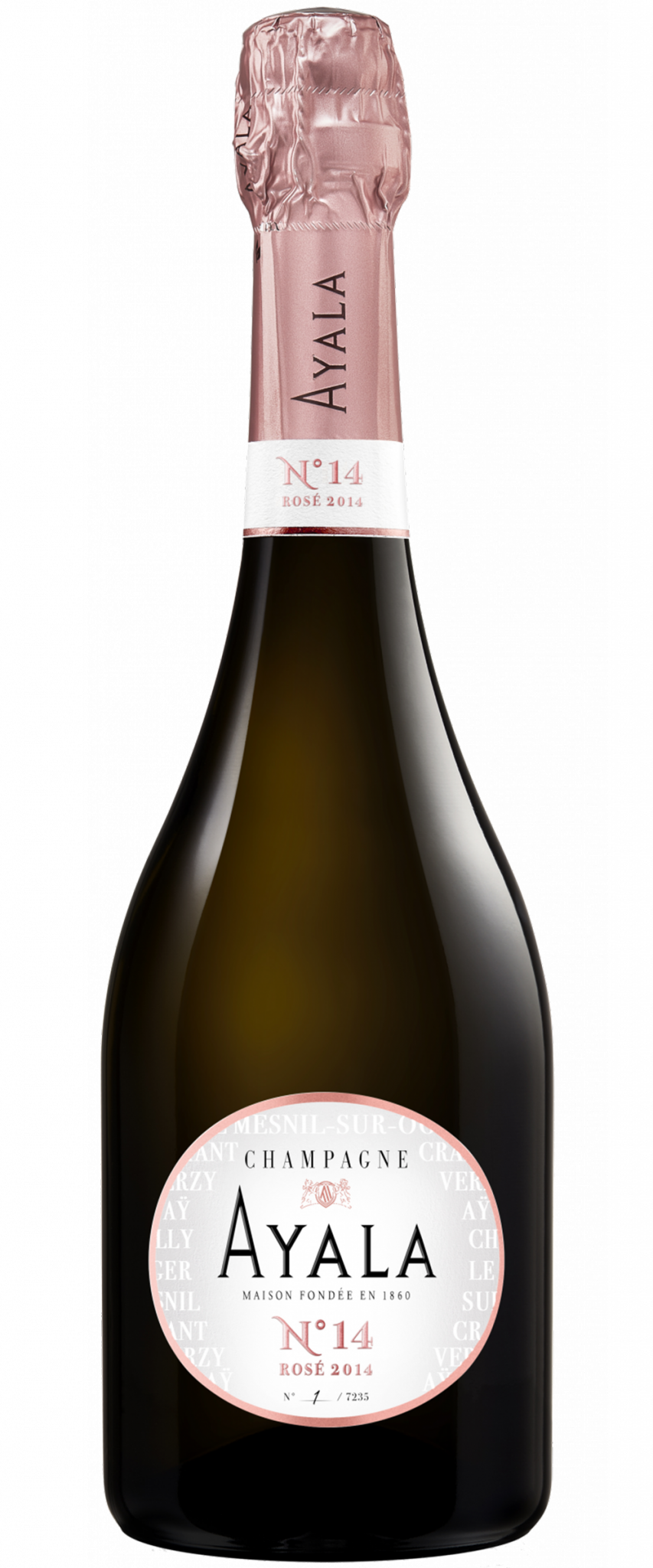
Champagne Ayala
N° 14 Rosé
Champagne, France
N° 14 is the third opus from the "COLLECTION AYALA," a set of cuvees produced in limited quantities, unveiled only as they approach their peak level of drinkability. This ephemeral cuvee is 60% Chardonnay and 40% Pinot Noir — including Grand Cru Aÿ red wine.
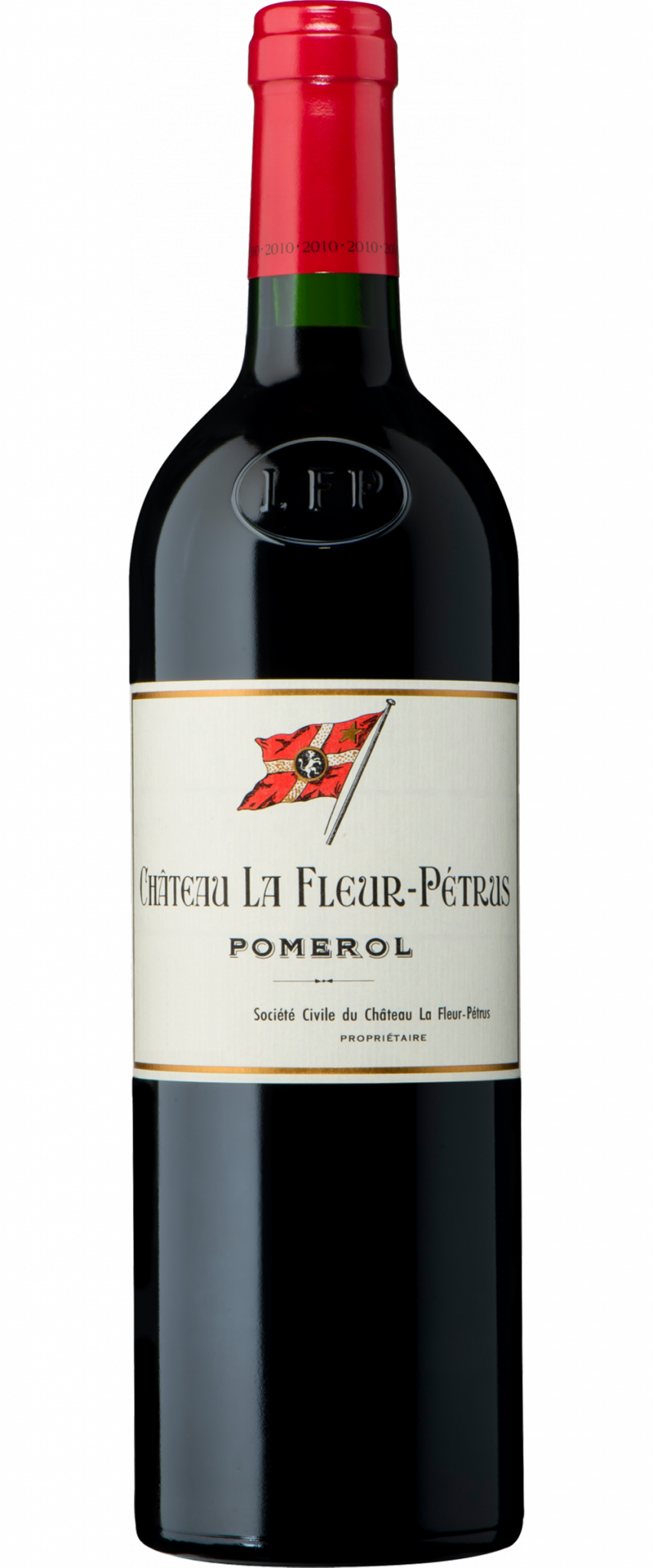
Château La Fleur-Pétrus
Château La Fleur-Pétrus
Pomerol
The sole wine of the estate, LFP has historically been one of the most seductive wines in Pomerol, with the last decade bringing depth and structure that have elevated it to among the top few extraordinarily complex wines, year in and year out.

Château Lyonnat
Wine has been produced at Château Lyonnat for centuries, and this property has an absolutely exceptional vineyard of 79 acres, planted on limestone, south facing, and with plots of very old vines. The wines always have a true sense of elegance and refinement.

Xavier Milhade Wines
Château Montcabrier
Château Montcabrier is a selection parcèllaire from the Milhade family’s estate, Château Recougne. This property has produced wine for more than 400 years, and has been recognized for nearly as long for producing outstanding wine - its name is said to have come from King Henri IV in the early 17th century, in “recognition” of the quality of its wine. The Milhade family purchased the property in the early 1950s, and Recougne has become their flagship estate, producing quintessential pure Bordeaux each vintage – classic “claret” in the best sense of the word. Montcabrier is a produced in the same manner as Recougne, but from younger vines and parcels giving more forward, fruity wines

Spice Trader
Langhorne Creek
Just as the spice traders of old, we risk all in search of exotic flavors. We join you in the hunt for those elusive spices that fascinate our palates and capture our imaginations. Wine should be an adventure. Start your adventure now with this smooth easy drinking Shiraz Cabernet blend.
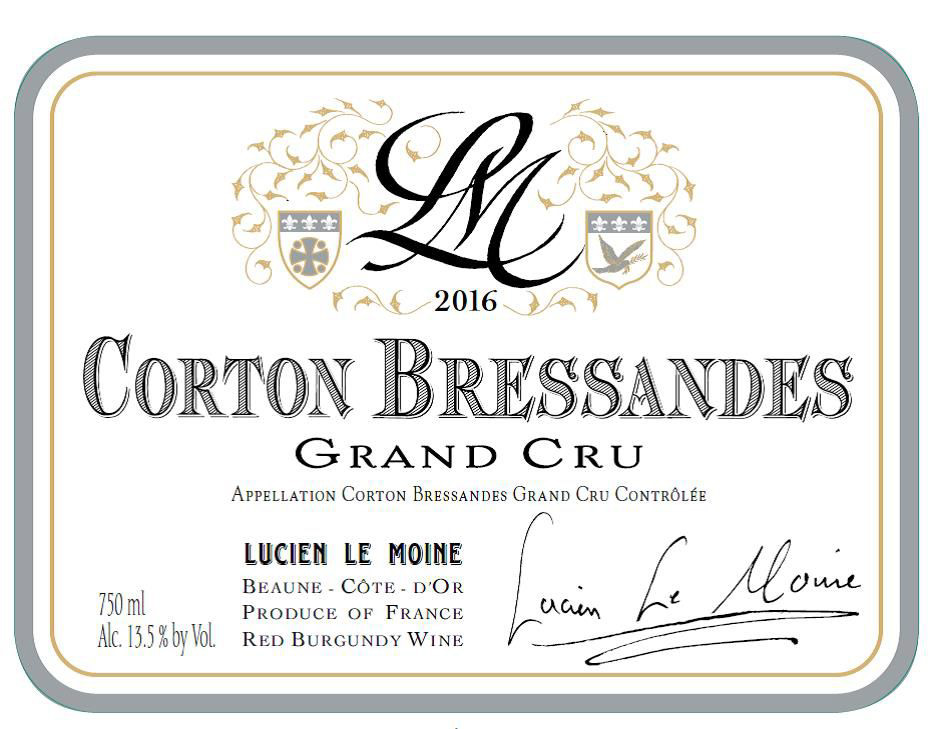
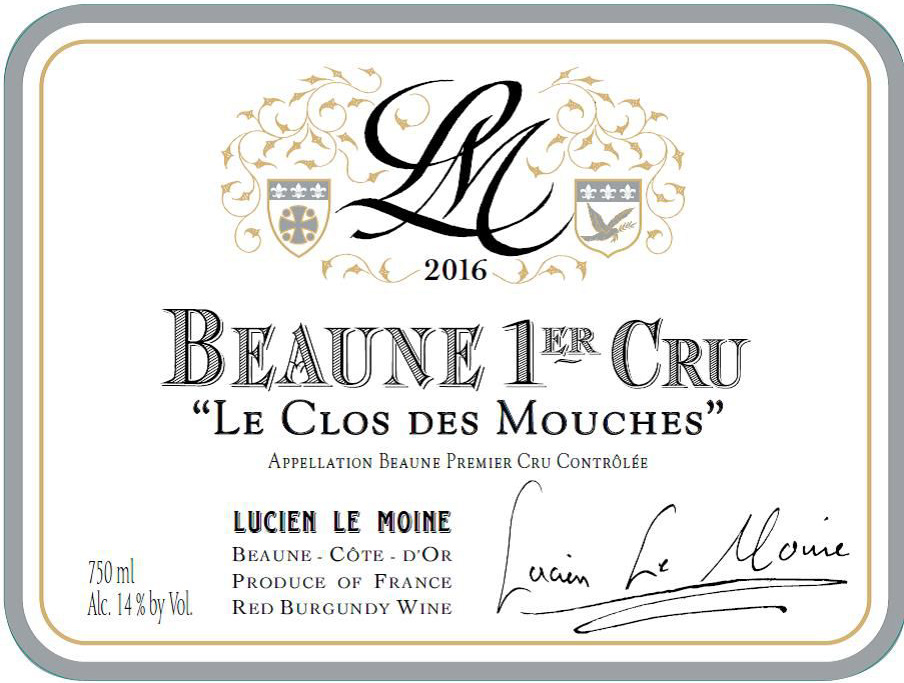
Lucien Le Moine
Beaune 1er Cru “Le Clos des Mouches” Rouge
Beaune 1er Cru “Le Clos des Mouches” Rouge
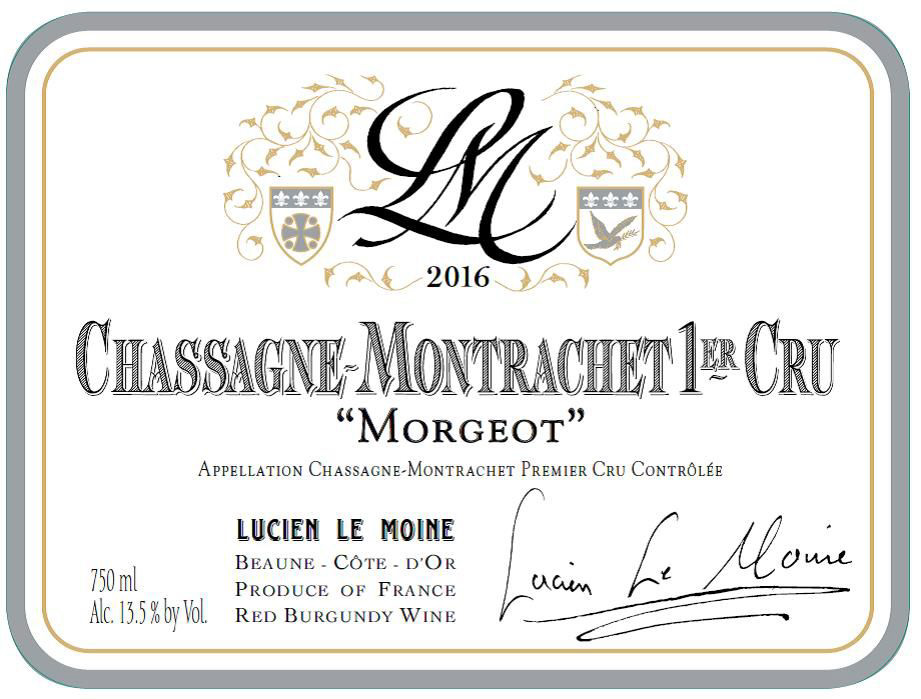
Lucien Le Moine
Chassagne-Montrachet 1er Cru “Morgeot” Rouge
Chassagne-Montrachet 1er Cru “Morgeot” Rouge
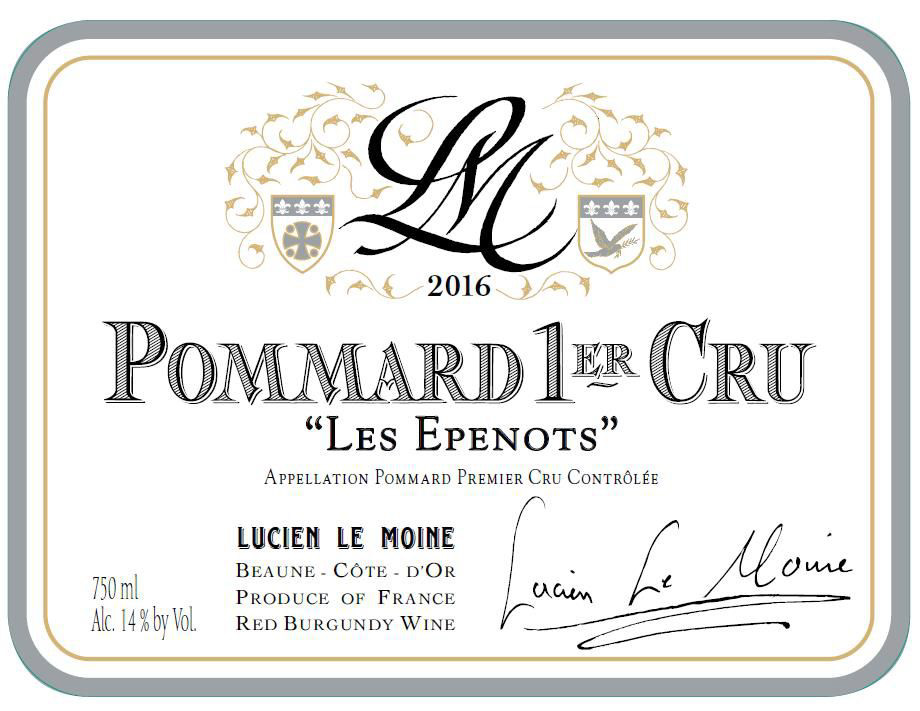
Lucien Le Moine
Pommard 1er Cru “Les Epenots”
Pommard 1er Cru “Les Epenots”
The vineyard for Lucien Le Moine’s Les Epenots has a clay and humidic soil, down on the bottom of the hill. It is compact soil, with not a lot of drainage. The wines as a result are very tannic, and need time. Les Epenots is a very powerful Pommard, with a lot of depth and muscle, and plum and spice notes. It is, as Mounir says, almost Bordeaux-like.
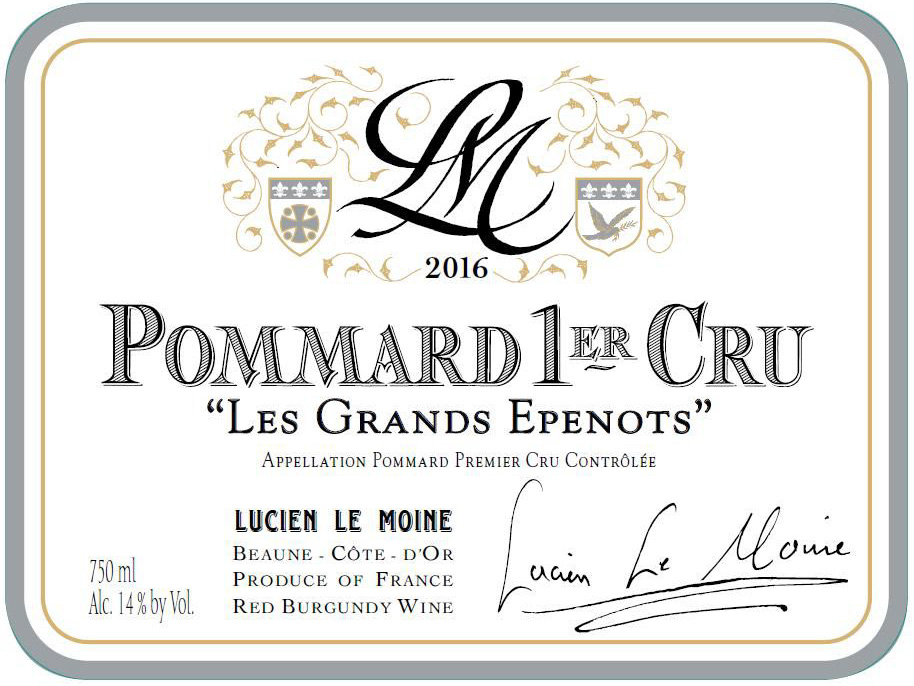
Lucien Le Moine
Pommard 1er Cru “Les Grands Epenots”
Pommard 1er Cru “Les Grands Epenots”
The 25 acre Les Grands Epenots vineyard is considered by some one of the very finest climats in Pommard. The fruit for Lucien Le Moine’s “Les Grands Epenots” comes from higher up in the vineyard leading to a classic and very fine expression. The vineyard is higher, it has better drainage, and there is more limestone, resulting in a wine that is both silkier and more easygoing than “Les Epenots.”

Ferrer Bobet
Priorat
Priorat, Spain
Ferrer Bobet Priorat is the second vintage of a Priorat produced primarily from Ferrer Bobet’s own vineyards. It fulfills the vision of elegance, freshness and detail that were the reasons for starting the estate. It is a Carignan based blend, based on low vigor and high quality rootstocks and clones, aiming for perfectly balanced vines.
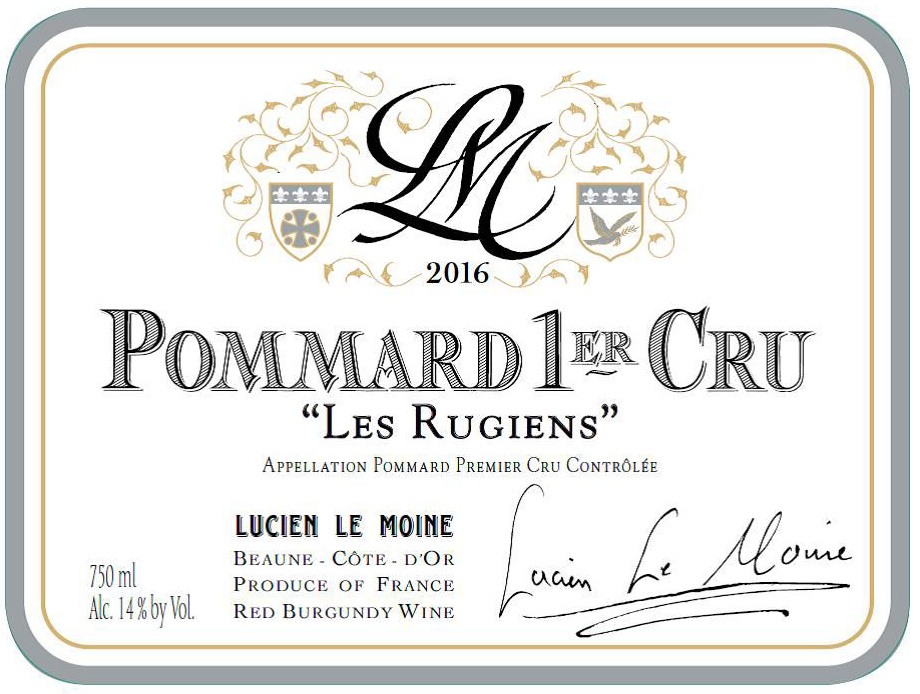
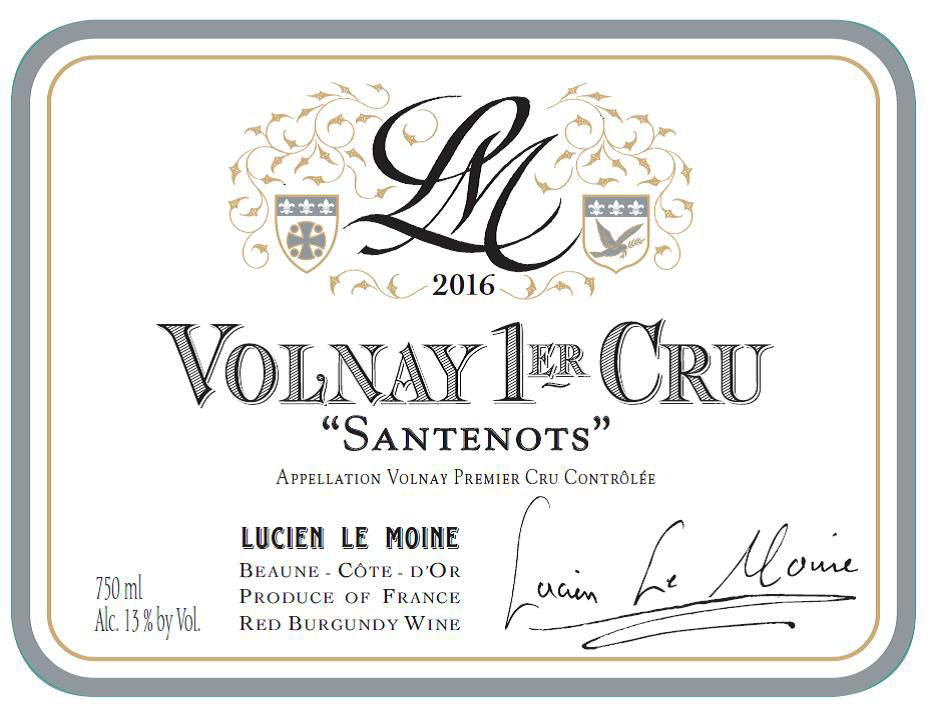
Lucien Le Moine
Volnay 1er Cru “Santenots”
Volnay 1er Cru “Santenots”
The Santenots vineyard comprises about 56 acres. Down in Meursault, actually in the village of Meursault, Santenots is really planted on white wine soils. Sometimes you can even find the smokiness of Meursault in the wines. They are light and fruity wines, easily gliding through the palate because they don’t have firm structure.
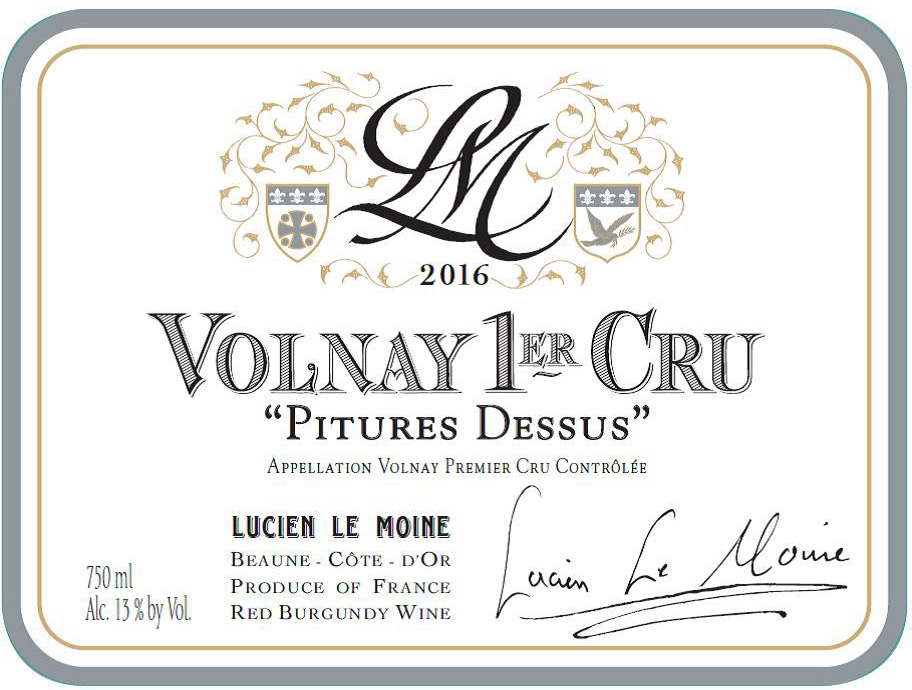
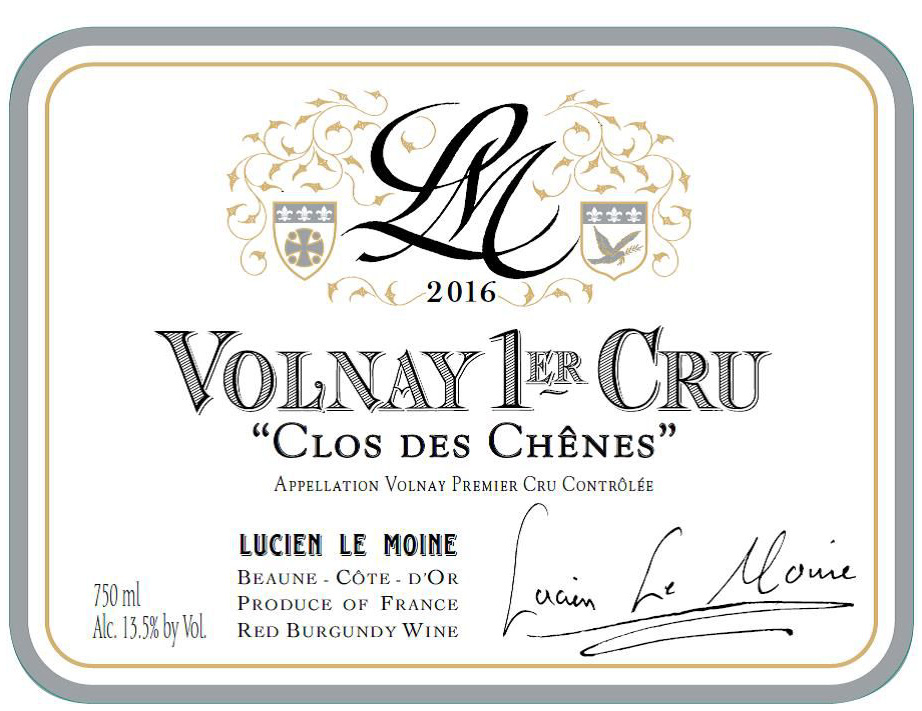
Lucien Le Moine
Volnay 1er Cru “Clos des Chênes”
Volnay 1er Cru “Clos des Chênes”
Clos des Chênes is a Premier cru site located at the southern end of Volnay. It is just up the hill from neighboring Les Caillerets, but is opposite in style: Clos des Chênes is typically a fuller wine than les Caillerets, with more body, tannins, depth and spice.
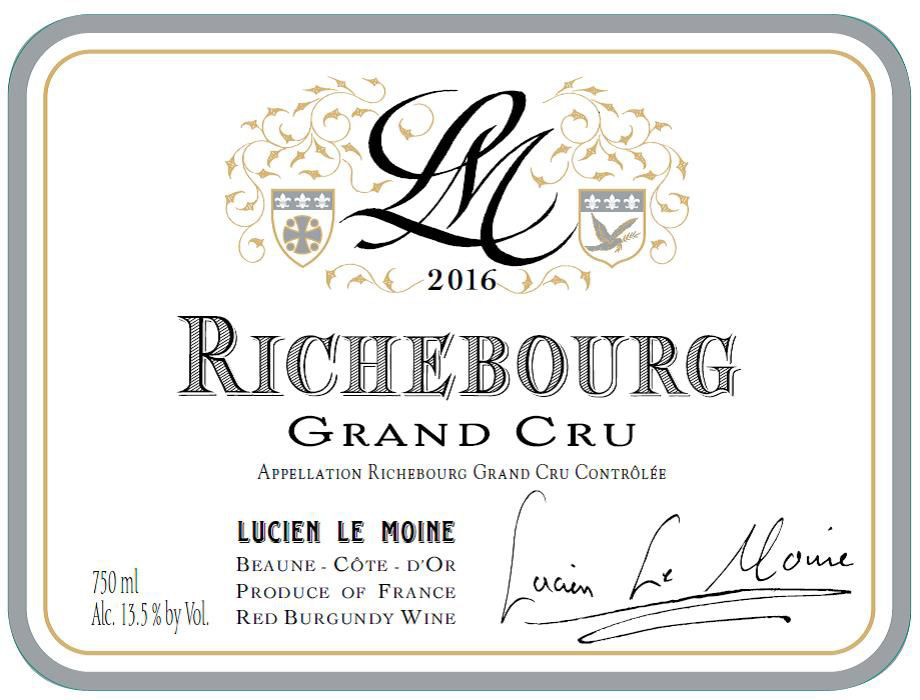
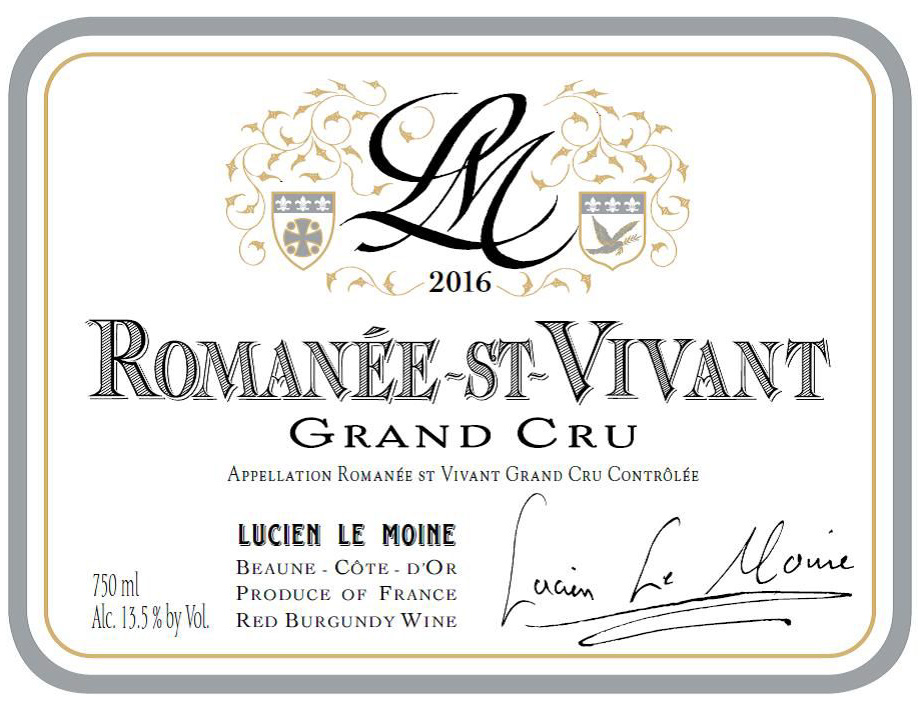
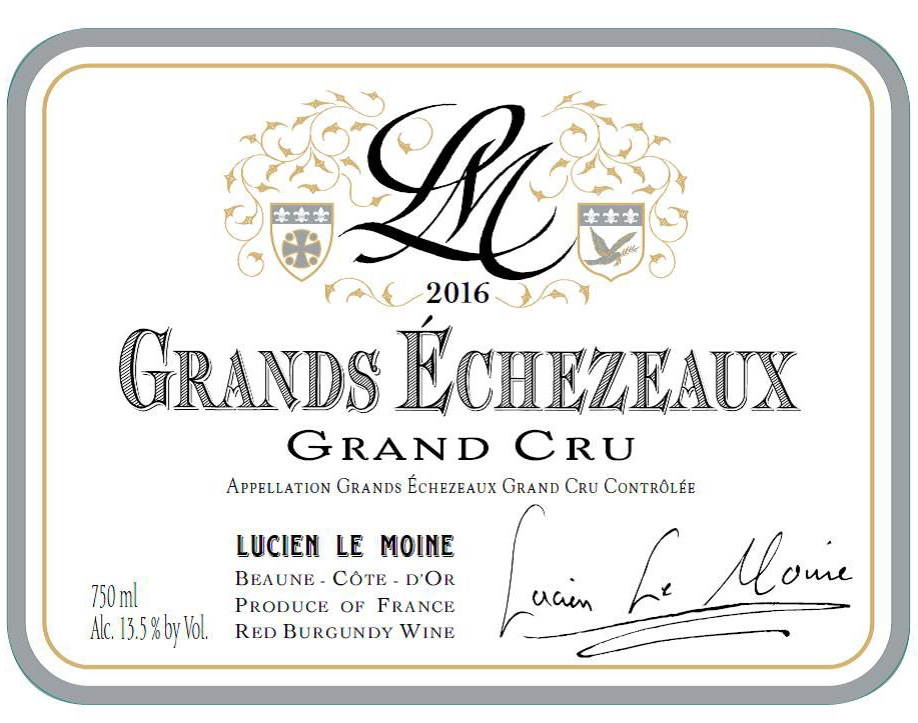
Lucien Le Moine
Grands Échezeaux Grand Cru
Grands Échezeaux Grand Cru
Grands Échézeaux is a 23 acre vineyard, one that only recently Lucien Le Moine has started working with to produce wines that show unusual subtlety and harmony. Mounir describes Grands Échézeaux 22 as the “Les Amoureuses” of Vosne. It sits between Échézeaux and Clos de Vougeot, which are big and tannic, but Grands Échézeaux is very balanced and straight - nothing is exaggerated.